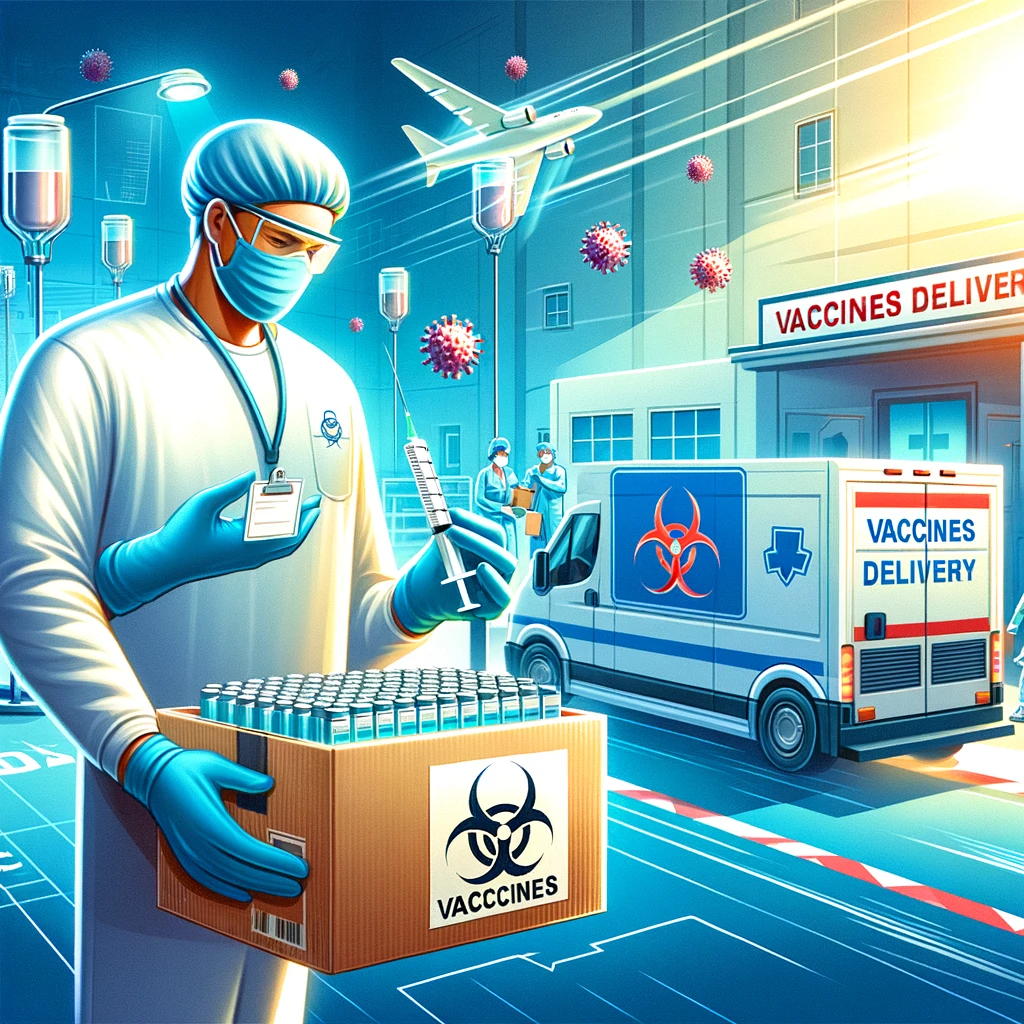Vaccines Delivery Industry: Navigating Challenges and Innovating Solutions Amid Global Demand Surge

The Global Vaccines Delivery Industry is currently experiencing a period of rapid transformation, driven by the ongoing need for COVID-19 vaccinations and the emergence of new vaccines for various diseases. As governments and healthcare organizations strive to enhance their immunization programs, the logistics of vaccine delivery have become a focal point, emphasizing the need for innovation and efficiency in the supply chain.
One of the primary challenges facing the industry is the complexity of cold chain logistics. Vaccines are often sensitive to temperature fluctuations, requiring storage and transportation at precise temperatures to remain effective. This requirement has spurred advancements in cold chain technology, with companies investing in state-of-the-art equipment to maintain the integrity of vaccines during transit. According to a recent report by MarketStudyReport.com, The Global Cold Chain Equipment market showcased growth at a CAGR of 12.10% during 2020-2023. The market was valued at USD 21.43 Billion in 2022 which is expected to reach USD 59.10 Billion in 2030, underscoring the increasing demand for reliable vaccine delivery solutions.
In response to these challenges, industry leaders are implementing innovative approaches to streamline the distribution process. UPS Healthcare, a prominent player in the vaccine delivery sector, has expanded its global cold chain network, integrating new technology to monitor temperature conditions in real-time. "Our focus is on ensuring that vaccines reach their destination safely and efficiently, regardless of geographic or environmental obstacles," said Wes Wheeler, President of UPS Healthcare, in a recent statement.
Moreover, the industry is witnessing a surge in collaborations between pharmaceutical companies and logistics providers. Pfizer and BioNTech, developers of the widely used COVID-19 vaccine, have partnered with DHL and FedEx to enhance their distribution capabilities. This collaboration has significantly improved the reach of vaccines, particularly in remote and underserved regions.
However, the industry is not without its challenges. The rapid scaling of vaccine production and distribution has led to logistical bottlenecks, particularly in low-income countries where infrastructure may be lacking. The World Health Organization (WHO) has emphasized the need for equitable vaccine distribution, urging countries to strengthen their healthcare systems and improve access to vaccines for all populations.
As the vaccines delivery industry continues to evolve, the focus remains on overcoming these challenges and ensuring that life-saving vaccines are accessible to everyone, everywhere. The ongoing innovations in cold chain logistics, coupled with strategic partnerships, are paving the way for a more resilient and efficient vaccine distribution network worldwide.
Sources:
- MarketStudyReport's report on cold chain logistics growth.
- Statement by Wes Wheeler, President of UPS Healthcare.
- World Health Organization (WHO) reports on vaccine distribution equity.
